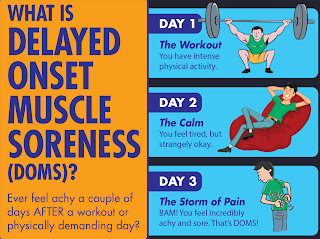The expression "lying flat" has become a popular expression in China in recent years. I asked Google's Gemini to expand on its meaning, even though I had a general idea of what the term meant.
What does the current Chinese expression "lying flat" actually mean?
The current Chinese expression "lying flat" (躺平, tǎng píng) is a slang term used to describe a social and personal philosophy that rejects societal pressures to overwork and overachieve. Here's a deeper look at its meaning:
Literal Translation:
The term translates literally to "lying flat" or "to lie down flat."
Figurative Meaning:
Figuratively, it represents a passive resistance or opting out of the "rat race" mentality. It's about prioritizing personal well-being and a simpler life over chasing material success or career advancement.
Underlying Factors:
The "lying flat" movement arises from several factors, including:
Economic Inequality: A growing sense of disillusionment with the traditional path to success due to increasing economic inequality and limited job opportunities.
Burnout Culture: A reaction against the intense work culture in China, often characterized by long hours and high pressure.
Desire for Balance: A longing for a more balanced lifestyle with time for leisure and personal pursuits.
Spectrum of Responses:
The "lying flat" movement isn't a monolithic concept. It can encompass a range of responses, from:
Minimalism: Choosing to live with less and work only to meet basic needs.
Quiet Quitting: Fulfilling work duties but not going above and beyond.
Pursuing Passions: Focusing on hobbies and interests rather than career advancement.
Criticisms and Concerns:
The movement has received some criticism for potentially hindering economic growth and innovation.
Some worry it might discourage ambition and hard work.
Overall:
The "lying flat" movement highlights a growing societal shift in China, with younger generations questioning traditional values of work and success. It's a complex phenomenon with both potential benefits and drawbacks, reflecting the changing social and economic landscape in the country.

I guess the term sums up my retirement lifestyle rather well but in this post I'm using the term quite literally. I've discovered that when I lie down flat to sleep a pain starts up in the socket joint of my right shoulder which seriously impairs a restful night's sleep. However, if I prop myself up, so that my upper body is no longer flat, the pain disappears and I mean it completely disappears. Naturally I asked Gemini.
When I lie down flat to sleep, I encounter pain in the socket joint of my right shoulder. This considerably impairs a restful night's sleep. However, if I prop myself up with pillows so that my upper body is no longer flat in the bed, then the pain completely disappears. What might be the reason for this phenomenon?
There are a few possible reasons why you experience shoulder pain when lying flat on your back, but the pain disappears when you sleep propped up with pillows:
Rotator Cuff Impingement: This is a common possibility. The rotator cuff is a group of muscles and tendons that stabilize the shoulder joint. When you lie flat on your back, the space in your shoulder joint can become compressed. If you have rotator cuff impingement, this compression can irritate the tendons and bursa (fluid-filled sac) in the shoulder, causing pain. Propping yourself up with pillows takes pressure off the joint and allows more space for the rotator cuff tendons to glide smoothly, reducing pain.
Labral Tear: The labrum is a ring of cartilage that surrounds the shoulder socket and helps keep the ball (humerus) of the upper arm bone in place. A labral tear can cause pain, especially when lying on the affected shoulder. Propping yourself up with pillows might shift the position of your arm and reduce pressure on the labrum, alleviating pain.
Arthritis: Osteoarthritis or inflammatory arthritis in the shoulder joint can cause pain and stiffness. Sleeping flat might compress the joint or stretch the capsule in a way that aggravates the arthritis, while sleeping propped up might provide some relief.
Sleeping Position: Sometimes, simply the way your shoulder is positioned when lying flat can irritate nearby tissues. Propping yourself up might change the position and alleviate discomfort.

Recommendations:
See a Doctor: It's important to consult a doctor for a proper diagnosis. They can perform a physical examination, order imaging tests (X-ray, MRI) if needed, and recommend the best course of treatment for your specific condition.
Self-Care Measures: In the meantime, some self-care measures might help manage the pain:
Apply ice packs: Apply ice packs to your shoulder for 15-20 minutes at a time, wrapped in a thin towel, to reduce inflammation.
Over-the-counter pain relievers: Consider using over-the-counter pain relievers like ibuprofen or acetaminophen to manage pain.
Sleeping on your side: Sleeping on your unaffected side might be more comfortable than lying flat on your back.
Maintain good posture: Practice good posture throughout the day to help align your shoulder joint and avoid further strain.
Lying flat on my right side so that the shoulder joint is compressed might naturally cause pain and discomfort but the orientation of my body doesn't seem to matter. If I lie flat on my back, flat on my stomach or on my side with the right shoulder uppermost, it doesn't make any difference: the pain is always there. It really is caused by simply lying flat in any position and once I prop myself up, I'm fine.
The joint or its surrounding tissue is definitely damaged from an injury way back in my early thirties when I was playing tennis. At the time, I pushed through the discomfort and continued playing but the joint was never the same. However, it never caused me any day-to-day discomfort until now when it would seem all my chickens are coming home to roost.
I should be thankful I guess that I don't experience pain when I'm upright or else I'd be in a pickle. The Ibuprofen doesn't seem to have much effect so I've discontinued the use of that medication.








